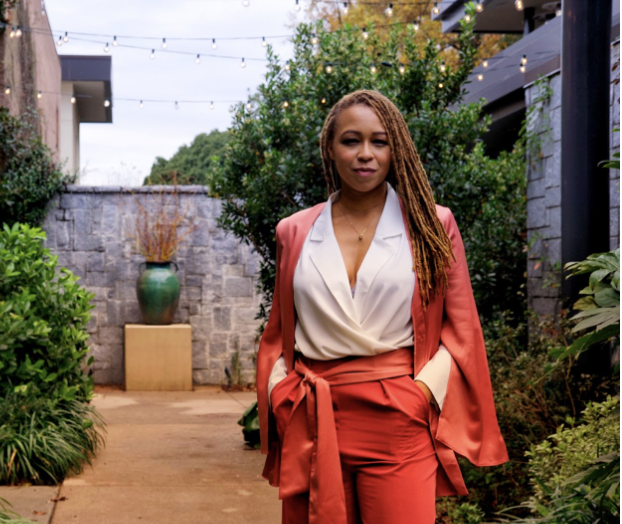
My name is Dr. Zuri Tau and I’m an evaluator, researcher and strategist working, parenting, and making meaning in Atlanta. I am the CEO of Social Insights Research and the founder of Liberatory Research. My practices are informed by Black and third-world feminisms and indigenous methodologies of the Global South.
“You’re right.” These may be my favorite words to hear after “I love you.” Do you remember the last time you won an argument or someone agreed with a point you were making? The little surge of satisfaction when your friend or coworker acknowledges your brilliance or admits how justified you are? It’s like a little treat. I experience similar feelings when I make solid evaluation and research conclusions, type them up in a report and folks ooo and ahhh over the slide deck! It’s a mix of satisfaction, confidence and rightness. Academia and our profession has taught us to aspire to this feeling without understanding how it triggers our minds to close to possibility. And as good as it feels to be right, what if we’re wrong?
The western academy has convinced us that we’re learning what is most important, but it thrives on excluding knowledges that disrupt the European canon. Methods for the exploration, understanding and framing of our work have become invisible and ingrained. The ways we go about determining what is right or finding the answers are just as important as the outcomes. To actively practice liberatory evaluation and research, we have to learn how to cultivate a critical approach to our work.
We do this by asking and adjusting to the answers to questions like:
- Whose knowledge is being privileged?
- How did we arrive at this conclusion, and what assumptions are being made in the process?
- Who benefits from these findings?
- When I decide what is right or true, who is framed in the deficit?
- How is our thinking limited by the social location of those doing the evaluation?
Liberatory practice is an inside-out job and I invite you to start right now. Begin by examining your entitlement to define and measure truth, fact, and success. Open the doorway to curiosity and possibilities beyond what you think you know because what feels even better than being right is knowing that you’re wrong.
Rad Resource:
Try this 7-Day Practice on www.liberatoryresearch.com. Sign up to engage in guided daily practice to think more deeply about your role as an evaluator. The website also is a great place to find books, articles, and resources on non-western evaluation and research practices.
Do you have questions, concerns, kudos, or content to extend this aea365 contribution? Please add them in the comments section for this post on the aea365 webpage so that we may enrich our community of practice. Would you like to submit an aea365 Tip? Please send a note of interest to aea365@eval.org. aea365 is sponsored by the American Evaluation Association and provides a Tip-a-Day by and for evaluators.
